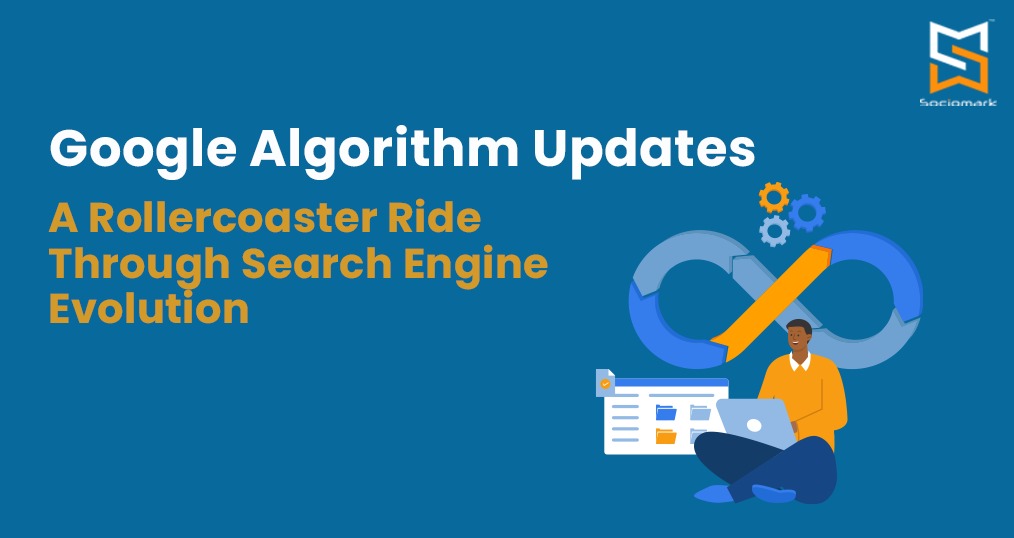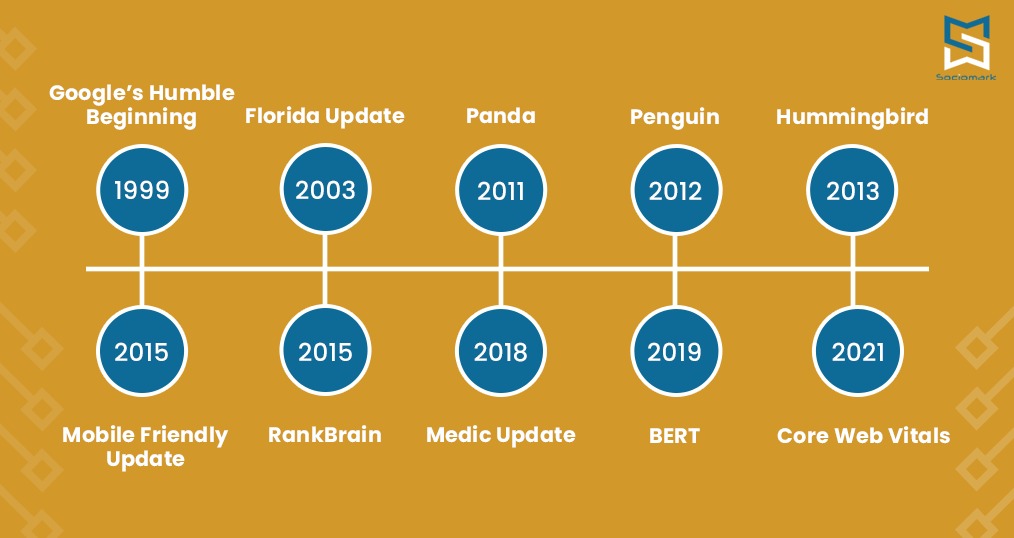
Google, the most widely used search engine in the world, handles billions of search requests. A sophisticated set of algorithms determines the relevancy and ranking of websites behind its effective search results. Google has improved its algorithms throughout time to provide people with more accurate and worthwhile search results. This article reveals how the key Google algorithm modifications have impacted search engine optimisation (SEO) and takes you on a historical trip through each one.
Google’s Humble Beginning: Larry Page and Sergey Brin created Google in 1998 and built it on the ground up using their ground-breaking PageRank algorithm. PageRank substantially altered the way search results were ranked by determining a website's authority based on the quantity and quality of inbound connections. This algorithm paved the way for Google's search technology to advance in the future.
Florida Update (2003): The Florida upgrade in 2003 signaled a crucial turning point for SEO. It targeted websites using deceptive techniques like hidden content and keyword stuffing. The upgrade caused significant changes in search results and showed webmasters how crucial it is to follow Google's standards for high-quality content and a positive user experience.
Panda (2011): When Google Panda was introduced in 2011, it concentrated on the calibre of the content. Sites with useful, informative information were rewarded, while those with poor, low-quality content were penalised. The significance of developing interesting, user-centric content was highlighted by this upgrade, which revolutionised content marketing.
Penguin (2012): Websites utilising black-hat SEO approaches were specifically targeted by the Google Penguin update in 2012, especially those engaged in questionable link-building strategies. Penguin penalised websites with artificial backlink profiles, highlighting the need of using high-quality, natural link development techniques.

Hummingbird (2013): An evolution toward semantic search was signaled with the Hummingbird upgrade. It sought to comprehend the context and intent of search queries so that Google could deliver more pertinent results. Conversational searches are more successful thanks to Google's improved understanding of natural language and long-tail keywords thanks to Hummingbird.
Mobile-Friendly Update: In 2015, Google released a mobile-friendly upgrade in response to the rising use of mobile devices. In order to encourage companies to embrace responsive design and offer a smooth mobile user experience, this update gave priority to mobile-friendly websites in mobile search results.
RankBrain (2015): The introduction of RankBrain furthered Google's comprehension of search queries. With the help of RankBrain, a machine learning algorithm, complicated search queries are interpreted and processed to produce more pertinent results. It evaluates user behavior and modifies search results as necessary.
Read this article to know : How SEO Boosts Your Business Success
Medic Update (2018): Websites dedicated to health and wellness were significantly impacted by the Medic update. Businesses were encouraged to build their competence and authority in their respective sectors since it was emphasised how important E-A-T (competence, Authoritativeness, Trustworthiness) was in rating these sites.
BERT (2019): The revolutionary natural language processing technique known as Bidirectional Encoder Representations from Transformers (BERT) was unveiled in 2019. BERT seeks to comprehend the context of each word in a search query so that Google may deliver more precise and pertinent results.
Core Web Vitals (2021): The Core Web Vitals update was launched in 2021 and focused on user experience metrics, including loading speed, interactivity, and visual stability of web pages. Websites that provided better user experiences by meeting Google's Core Web Vitals criteria were rewarded with improved rankings. This update emphasised the importance of optimizing website performance to enhance user satisfaction and search engine rankings.
The evolution of Google's algorithms demonstrates the search engine's unwavering commitment to offering the greatest user experience. Each upgrade has had an impact on how websites are ranked and impacted the SEO landscape, from focusing on manipulative practices to giving high-quality content and user intent priority. Businesses must modify their SEO tactics to keep up with the ongoing changes to Google's algorithm. Success in the constantly changing field of search engine optimisation depends on a number of key elements, including excellent content, user experience, mobile friendliness, and a natural link profile. Businesses may take advantage of Google's best practices, ensure a prominent spot in search results, and provide valuable experiences to people everywhere by keeping a close eye on upcoming developments. Sociomark's as an SEO Agency in Mumbai, supported by a group of experienced professionals who use cutting-edge tactics to increase organic traffic and raise search engine ranks. They are a top choice for companies looking for outstanding online exposure and long-term success due to their track record of producing measurable outcomes and individualised techniques.
Also Read: Why SEO is a Must-Have for Your Business Growth
Author: Bhavesh Jame (Sr.SEO Executive)


